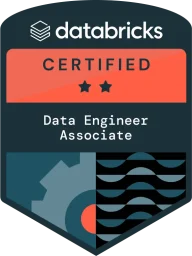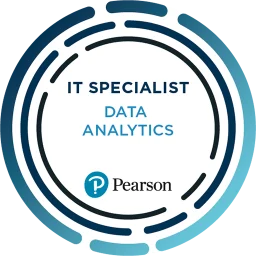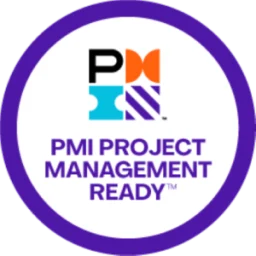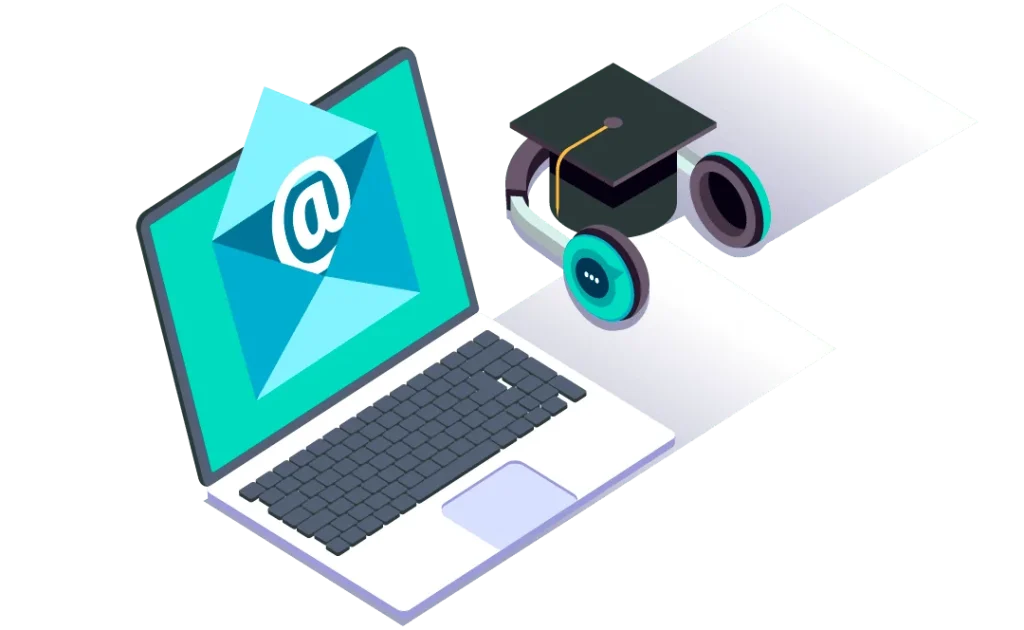
Artificial Intelligence & Data Science Master
On-campus / Online classes live
March 2026
75 Credits
- No son necesarios conocimientos previos
- We prepare you for certification

¿Por qué estudiar el Máster en Inteligencia Artificial y Data Science?
El Máster en Inteligencia Artificial & Data Science de IMMUNE forma expertos en datos con competencias prácticas para responder a la creciente demanda empresarial. El programa aborda áreas como ingeniería, análisis, ciencia y gestión de datos, e incluye talleres con profesionales de la industria. Integra las últimas tendencias en IA para tratar datos complejos y mejorar la toma de decisiones, aprovechando la experiencia del instituto y la calidad de su equipo docente.
Access profile
- The student must hold a university degree or equivalent qualification.
- Students who have recently completed their undergraduate studies in different areas of knowledge and who are interested in acquiring skills in handling, analysing and interpreting data to serve business objectives.
- This student profile will be able to complete their training process with the professional internships associated with the programme (12ECTS) that can be recognised in the case of a "senior" entry profile.
- Professionals who wish to acquire skills in data science and analysis, with AI and Big Data technologies, with accredited work experience of at least 3 years in positions requiring a minimum of a Bachelor's degree or equivalent.
- No previous programming knowledge is required for this programme.
- A background in analytics or data science is also not required, although previous professional experience in data handling can enhance the training experience.
Program aims
- Extract, process and analyse all types of data using current techniques and tools.
- Understand, create and develop new business models and technological projects based on the value of data.
- Detect causes, patterns and trends using advanced data analytics.
- Undertake, manage and lead data science and big data projects.
- Present data in a visual form to obtain valuable information to solve a problem.
- Build, implement and evaluate data-related problems using Machine Learning and Deep Learning algorithms.
Career opportunities
- Data Scientist.
- Business Intelligence Analyst.
- Business Intelligence Expert.
- Data Analyst.
- Data Engineer.
- Chief Data Officer.
Career Readiness
The comprehensive training we deliver to our students thoroughly prepares them for the employment market. Through a personalized syllabus, we help them develop professional skills, establish relationships with companies and sail through recruitment processes.
An alternative training
In all our content, we include a percentage of Human Sciences to connect technology with soft skills.
Learning By Doing Methodology
It focuses on the practical application of knowledge and skills to foster meaningful and lasting learning.
Certification training
At the end of the programme, you have the possibility to choose between one of these certifications:

And these official certifications are free of charge:



Study plan
Programming fundamentals
This module focuses on introducing the fundamentals of programming using Python, a widely used and versatile language that is ideal for beginners and professionals alike. Python is used in web applications, data analysis, artificial intelligence, task automation and much more. Its simple and readable syntax makes it easy to learn and develop, providing a solid foundation for the rest of the program.
Modules:
- Introduction and Basic Python Features
- Data Types, Variables and Text Manipulation
- Python Data Structures
- Random Data Generation
- Flow Control Structures
- Python functions
- Manipulation of Dates and Times
- Lambda Functions
- Regular Expressions
- Working with JSON Data
Databases
This module provides a comprehensive introduction to the world of databases, covering everything from basic modelling principles to practical implementation using SQL. Through this course, students will learn how to define, manipulate and manage data within structured database systems, using SQL as the primary tool. The goal is to equip students with the skills necessary to design efficient databases and perform complex queries to support business decisions.
Modules:
- General Concepts and Database Modelling
- Introduction to the SQL Standard: Data Definition Language (DDL) and Data Manipulation Language (DML)
- Advanced SQL Standard: Subqueries and Common Table Expressions (CTEs)
- Scripting in SQL
Data Transformation and Modelling
This module focuses on data transformation and data modelling, essential techniques for turning raw data into valuable information in business contexts. Through methodologies such as ETL, ELT, and EL, and using modelling standards such as dimensional modelling and Data Vault, students will learn how to create sophisticated data products. In addition, the course will address the use of modern tools for the orchestration of data flows and the creation of applications and APIs that enable the effective exploitation of transformed data.
Modules:
- Data Transformation
- Modelling Techniques
- ETL/ELT/EL
- Data Flow Orchestrators
- Data Exploitation
- Creating APIs
- Data Applications
Visualisation principles and techniques
The module is designed to provide students with an in-depth understanding of how to transform complex data into clear, effective and actionable visualisations.
Modules:
- Introduction to Data Visualisation
- Types of Graphics and Their Applications
- Designing Effective Visualisations
- Visualisation Tools
- Interactive Visualisation and Dashboards
- Advanced Visualisation
- Case Studies and Applied Projects
Advanced data visualisation
Advanced data visualisation is essential for turning complex information into clear insights that support strategic decision making in a business environment. In this module, the focus is on using business intelligence tools such as Power BI and Tableau to generate interactive reports and dashboards that present valuable information to decision makers.
Modules:
- Concept and Relevance of Storytelling in the World of Data
- Key Elements of a Good Data Narrative
- Tools for Effective Dashboard Implementation: Power BI
- Python Integration for Preprocessing and Visualisation
AI Fundamentals: Machine Learning
This module sets the starting point for the world of Machine Learning, introducing you to the key concepts and essential techniques of the field. Through hands-on and applied learning, you will discover how models can unravel hidden patterns in data. The goal is to prepare you to handle more sophisticated challenges and dive into more advanced techniques in later modules.
Modules:
- Introduction to Machine Learning (ML)
- Life Cycle of an ML Project
- Fundamental concepts of ML
- Supervised Learning: Regression
- Supervised Learning: Classification
- Supervised Learning: Decision Tree and Random Forest
- Unsupervised Learning: Clustering
- Dimensionality Reduction
Statistics applied to data science
This module is a cornerstone, providing the fundamental tools to understand and analyse data accurately and rigorously. In this module, you will understand how statistical techniques and probabilistic concepts are essential elements in data-driven decision making, learning to apply statistical methods to draw meaningful inferences, identify patterns and trends, and make reliable predictions. We will acquire skills to assess the uncertainty and risk associated with data, critical in dynamic business environments.
Modules:
- Introduction and Key Mathematical Concepts
- Fundamentals of Statistics
- Descriptive Statistics
- Probability Distributions
- Linear Algebra
- Probability
- Fundamental Concepts
- Estimation Methods
Advanced AI I: Machine Learning
Once the techniques to start working with Machine Learning are established, this module will allow us to go deeper into more complex algorithms and scenarios, but it will also teach us advanced techniques to optimise our models and face problems when the data does not help us much in its natural state.
Modules:
- Advanced Algorithms
- Support Vector Machines (SVM)
- Stochastic Gradient Descent
- Ensemble algorithms: AdaBoost, XGBoost, among others.
- Model Optimisation
- Hyperparameter setting
- Selection of characteristics
- Regularisation
- Cross-validation
- Time Series Analysis
- Introduction to time series analysis
- Modelling and trends
- ARIMA and SARIMA models
- Networks
- Fundamental concepts of graphs
- Learning graph representations
- Classification and prediction of links
- Reinforcement Learning
- Concept of reinforcement learning
- States, actions and rewards
- Reinforcement learning algorithms
- Anomaly Detection and Learning from Unbalanced Data
- Identifying outliers using statistical methods, clustering and supervised learning
- Techniques for handling unbalanced data, such as additional data collection, synthetic generation and modification of algorithms
Advanced AI II: Deep Learning
The Deep Learning module is the next level in machine learning, where you'll explore deep neural networks and advanced architectures for tackling complex problems. Discover how these revolutionary techniques have transformed the field, enabling the analysis of more complex data and solving challenges in computer vision, natural language processing and more.
Modules:
- Introduction to Deep Learning
- Convolutional Neural Network (CNN)
- Recurrent Neural Network (RNN)
- Natural Language Processing (NLP)
- Generative Adversarial Networks (GAN)
Generative AI
The module on Generative Artificial Intelligence (Generative AI) provides students with an in-depth understanding of technologies that enable the creation of original content from existing data. The aim is to provide both theoretical knowledge and practical experience to implement generative models in different fields.
Modules:
- Generative AI Fundamentals
- Development and Coding with Generative AI
- Practical Applications of Generative AI
- Ethics and Responsibility in Generative AI
- Generative AI in Digital Transformation
Data Explosion: Distributed Processing in Big Data
Distributed processing has revolutionised the way we manage large volumes of data, and Apache Spark has established itself as one of the leading tools in this field. Its ability to process data in a parallel and distributed fashion, harnessing the power of cluster computing, has made it essential for professionals looking to extract value from the vast amount of information generated today.
Modules:
- Introduction to Distributed Processing with Spark: Understand the distributed processing paradigm offered by Spark. Its ability to split tasks across multiple cluster nodes allows operations to be performed at high speed and in parallel.
- Data manipulation with Spark DataFrame: DataFrames in Spark are optimised structures that allow efficient manipulation of tabular data. Here it is important to know:
- Loading data from multiple sources.
- Filtering and column selection.
- Aggregations and transformations.
- Spark SQL: This Spark module provides an interface that allows the use of SQL queries to manipulate data, facilitating analysis and gaining valuable insights.
- Data Cleaning and Preparation: Before any analysis, the data must be ready for use:
- Detection and treatment of null values.
- Handling of missing data.
- Data type conversion.
- Data standardisation.
- Data Transformation and Enrichment:
- Date and time operations to correctly handle time data.
- String manipulation for formatting and transforming textual data.
- Creation of new columns to provide additional information for analysis.
Technical workshops
This subject offers different workshops for students to explore the application of data based on success stories of companies and professionals from different industries.
Industry 4.0
The course explores the critical components and underlying technologies of Industry 4.0, a paradigm that integrates advanced digital tools within the industrial context to improve production processes and data-driven decision making. Students will learn about digital transformation and how companies can become Data Driven entities. In addition, the fundamentals of emerging technologies such as Cloud Computing, Big Data, Internet of Things (IoT) and Artificial Intelligence will be introduced, highlighting their importance and application in today's environment.
Modules:
- Digital Transformation
- Data Driven Companies
- Cloud Fundamentals
- Big Data Fundamentals
- IoT Fundamentals
- Fundamentals of Artificial Intelligence
Journey to Cloud
It provides a detailed understanding of the journey towards cloud adoption, including the technical, strategic and management aspects involved. Students will be guided through fundamental and advanced concepts of cloud computing, effective migration strategies and techniques for optimising and managing cloud infrastructures. A hands-on approach will be encouraged through the design, implementation and evaluation of cloud-based solutions.
Modules:
- Cloud Computing Fundamentals
- Key Components of Cloud Infrastructure
- Cloud Migration Planning and Strategies
- Design and Architecture of Cloud Solutions
- Security and Compliance Management in the Cloud
- Cloud Operations Management and Optimisation
- Innovation and Advanced Cloud Services
Data management, innovation and entrepreneurship
This comprehensive module teaches how to strategically manage and use data to foster innovation in a variety of organisational contexts. Through a combination of advanced theory and applied practice, you will study methodologies for effective data management and the implementation of innovative processes that capitalise on emerging opportunities in the technological and business environment.
Modules:
- Fundamentals of Data Management
- Innovation and Creativity in Business
- Emerging Technologies and Digital Transformation
- Entrepreneurship and Innovative Startups
- Innovation Project Management
Data Governance
This module provides a comprehensive overview of data governance, highlighting its importance in the management and protection of data assets within an organisation. Through the analysis of frameworks and regulations, students will learn how to implement effective policies that ensure data quality, security and compliance. The module combines theory with practical case studies to teach students how to design and implement a robust data governance programme that supports the organisation's strategic and operational objectives.
Modules:
- Fundamentals of Data Governance
- Metadata Management and Data Quality
- Roles and Responsibilities in Data Governance
- Technologies and Tools for Data Governance
Project Management
This module focuses on project management methodologies used to effectively lead, plan and execute complex projects. Through the study of predictive and agile methodologies, students will learn to adapt to dynamic environments and manage projects that respond to stakeholder needs and business objectives. This module combines academic theory and proven project management techniques, preparing students to face real project management challenges.
Modules:
- Project Management Fundamentals
- Predictive and Agile Project Methodologies
- Project Planning and Implementation
- Leadership and Project Team Management
- Digital Adaptation and Transformation in Project Management
- Project Management in Complex Environments
Data Ethics
This course explores the fundamental ethical principles applied to data management in the digital age. It will address complex issues such as privacy, confidentiality, autonomy and consent in the context of the growing use of data and analytics technologies. Through a combination of philosophical theory and case studies, students will learn to navigate and apply ethical frameworks in real-world situations related to data management, ensuring responsible and fair decisions in professional settings.
Modules:
- Fundamentals of Data Ethics
- Values in the Data Age
- Ethics in Digital Democracy
- Ethics and Responsibility in Generative AI
- Contemporary Issues in Data Ethics
Business workshops
This subject offers different workshops for students to explore the application of data based on success stories of companies and professionals from different industries.
Capstone Project
Team building.
- Choice of topic for final project.
- Assignment of tutors.
- Development of the project with an assigned tutor.
- Project delivery.
- Presentation of the final project before a panel of experts.
Internships
*Module subject to Qualification approval.
Connect with the work and professional environment to develop the skills, abilities and competences acquired in the curricular development Integrate the knowledge acquired in the training programme to the job position where the student is established. To value the performance and capacity to develop in a job position.
* El programa académico puede estar sujeto a cambios en función de la diferente variedad en la demanda de skills dominantes del mercado.
Professionals
What people say about us
Financing
Full payment
If you pay in one instalment you will receive a 15% discount.
15 cuotas sin intereses
Sequra
Pay in installments, even if you are unemployed and cannot guarantee the loan.
Quotanda
Pay in installments, even if you are unemployed and cannot guarantee the loan.
Fundae
Pay for your training through the Spanish Employment Training Foundation. Aimed at active workers who wish to finance their program through the subsidized training program.
FAQs
What certification or qualification will I receive on completion of the course?
Once you complete and pass the programme you will receive a diploma issued by IMMUNE Technology Institute in a digital format verifiable through blockchain technology.
Can the course be delivered online?
Yes, the program is delivered online with live classes. As such, you will be in direct contact and under the supervision of the teachers, which will enable you to follow the classes and interact in a flexible and natural way.
Is this programme for me?
Do you want to level up?
Do you want to stay in your field or sector, but you want to continue learning and explore new challenges? It's time to give your professional profile a boost and align it with the latest trends in technology.
Are you finishing your degree, and you want an upgrade in technology?
We love your profile, because you dare to dream. And in the professional world, fortune favors the bold. If you are an entrepreneur or freelancer, this program will help take your professional projects to the next level.
Want to change your professional career?
If you want your career to take a new direction and enter the world of tech with a bang, the program will help you specialize and shape your professional profile.
Are you an entrepreneur or freelancer?
This program will put you in the spotlight, as technology is the engine of innovation and the key to staying competitive in a constantly evolving market.
Will the tools I need be included in the price of the program?
The tools used throughout the program are licensed for free use, in some cases because we use educational licenses and in others because it is free software.
Is there a careers and employment guidance service?
We have an employability area which, through our Talent Hub program, is responsible for supporting the efforts of our students to enter the employment market. The services we offer include resources to help you search for and prepare for interviews, English tests, resume and/or Linkedin profile guidance, interview and elevator pitch training, and access to our exclusive internship and employment pool.
What are the requirements for my computer?
You will need to have access to a laptop with a camera, microphone and minimum requirements of 8 GB of RAM and an i5 processor.
What is the Capstone Project?
The final project is where everything you have learned throughout the program is applied and consolidated. You will present the project to a panel of professionals from companies in the sector, which represents a unique opportunity for students to demonstrate their knowledge to potential employers and also to network.
Are there grants or scholarships available?
Yes, there are scholarships or study grants as well as financing options depending on students’ circumstances. Check out our scholarship and financing options.
Book my personalised academic and professional consultation
Mary García

Rafael Torralva

Sabrina Stenta

Admission test
This questionnaire will allow us to gain an in-depth understanding of your profile, ensuring that the programme aligns perfectly with your current knowledge and expectations, and guaranteeing that you get the most out of your time with us.
Why should you take the test?
- To assess your prior knowledge.
- To ensure that this course is the right fit for you.
- To offer you a personalized and unique learning experience.
How does it work?
The test is completely online, requires no prior preparation, and will take no more than 25 minutes.
Admissions Process
Our students are characterized by their passion for technology. Our admissions process focuses on who you are, how you think, what you have accomplished, and then sharing your goals.
Our aim is to get to know you better, see what makes you unique and ensure that the IMMUNE educational model adapts to your profile.




Visit our Campus in Madrid and discover everything about our programmes
- Personalised guidance Monday to Friday.
- Intake now open for March, September and October.
Designed to replicate an ecosystem of start-ups and tech companies, we’ve created a slice of Silicon Valley in the heart of Madrid.

















